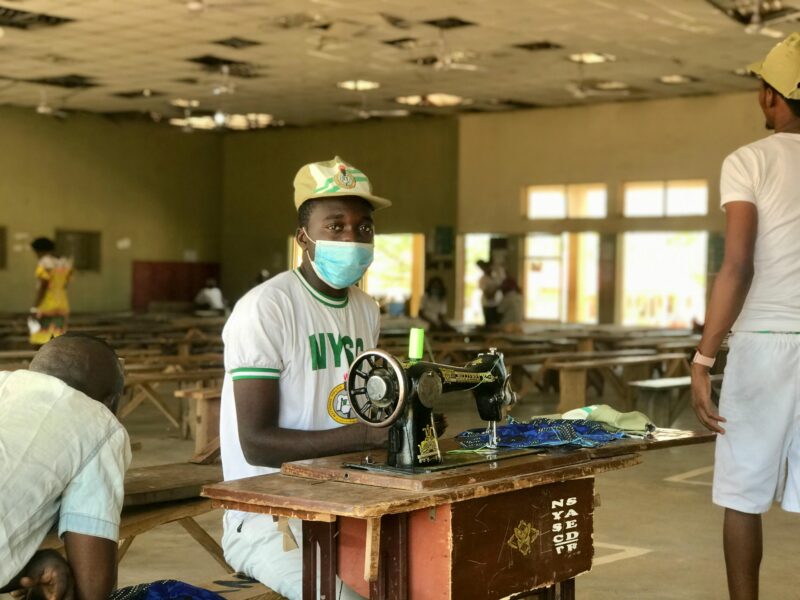Mortuary Science Schools in Georgia: A Comprehensive Guide
Mortuary Science Schools in Georgia: A Comprehensive Guide, Mortuary science is a specialized field that combines science, art, and compassion.
Professionals in this industry play a vital role in providing support and services during some of life’s most challenging moments.
For those interested in pursuing a career in funeral service, Georgia offers several opportunities to study mortuary science and gain the necessary education and training to excel in this rewarding profession.
The Associate of Applied Science in Funeral Service Education is introduced to prepare students for a career in funeral service.
Dealing with death can be distressing, but it is a part of life that everyone will must face
This article provides an in-depth look at mortuary science schools in Georgia, covering educational pathways, accreditation, career prospects, and why this field is an excellent choice for compassionate individuals.
What is Mortuary Science?
Mortuary science is the study of deceased human bodies, including preparation, preservation, and presentation for funerals and burials. It encompasses embalming, restorative art, grief counseling, and business management related to running a funeral home. Mortuary science programs aim to prepare students to meet the technical, ethical, and emotional demands of this profession.
Professionals in this field include:
- Funeral directors
- Embalmers
- Crematory operators
- Grief counselors
Why Choose Mortuary Science as a Career?
A career in mortuary science offers unique opportunities to make a meaningful impact on people’s lives. Here are some reasons to consider this profession:
1. Helping Families in Need
Funeral service professionals provide emotional and logistical support to grieving families. They help create meaningful ceremonies and guide families through the decision-making process.
2. Job Security
The demand for funeral services remains steady. According to the U.S. Bureau of Labor Statistics (BLS), employment for funeral service workers is expected to grow by 4% from 2021 to 2031.
3. Diverse Skill Set
Mortuary science requires knowledge in science, counseling, and business management. This diverse skill set allows professionals to wear multiple hats in their careers.
4. Competitive Salaries
In Georgia, the average annual salary for funeral service professionals ranges from $40,000 to $60,000, with experienced professionals earning even more.
Mortuary Science Programs in Georgia
Georgia is home to accredited mortuary science programs that provide students with the education and hands-on training needed to excel in this field. Below are the key institutions offering these programs:
1. Gupton-Jones College of Funeral Service
Located in Decatur, Georgia, Gupton-Jones College of Funeral Service is one of the most prominent institutions for mortuary science in the Southeast.
-
Program Offered:
Associate of Science in Funeral Service
-
Duration:
Typically 18 months to 2 years
-
Curriculum:
Includes courses in anatomy, embalming, restorative art, funeral directing, and business management.
-
Accreditation:
Accredited by the American Board of Funeral Service Education (ABFSE).
Gupton-Jones emphasizes hands-on training, preparing students to meet both state and national licensing requirements.
2. Ogeechee Technical College
While not exclusively a mortuary science school, Ogeechee Technical College in Statesboro, Georgia, offers related courses and training that can complement a mortuary science education.
-
Programs Related to Mortuary Science:
Anatomy, Business Management, and Counseling
-
Duration:
Varies by program
Ogeechee Technical College is an excellent choice for those seeking to enhance their qualifications in specific areas related to funeral service.
What to Look for in a Mortuary Science School
When selecting a mortuary science school in Georgia, consider the following factors:
1. Accreditation
Ensure the program is accredited by the American Board of Funeral Service Education (ABFSE). Accreditation ensures the program meets industry standards and qualifies graduates for licensing exams.
2. Licensing Preparation
The program should prepare students for state and national licensing exams. In Georgia, funeral service professionals must pass the National Board Examination (NBE) and meet state-specific requirements.
3. Hands-On Training
Practical experience is crucial in mortuary science. Look for programs that offer internships, labs, and hands-on training opportunities.
4. Location and Cost
Consider the school’s location and tuition fees. Many programs offer financial aid or scholarships to help offset costs.
Admission Requirements
Admission requirements for mortuary science programs vary by institution but typically include:
-
High School Diploma or GED
Applicants must have completed high school or hold an equivalent credential.
-
Prerequisite Courses
Some programs require coursework in biology, chemistry, or anatomy.
-
Entrance Exam
Certain schools may require entrance exams to assess academic readiness.
-
Background Check
Due to the sensitive nature of the profession, a background check may be required.
Licensing and Certification in Georgia
To work as a funeral director or embalmer in Georgia, professionals must obtain state licensure. Below are the key steps:
1. Complete an Accredited Program
Graduates must complete an ABFSE-accredited mortuary science program.
2. Pass the National Board Examination (NBE)
The NBE is a standardized test covering both the arts and sciences of funeral service.
3. Complete an Apprenticeship
Georgia requires aspiring funeral service professionals to complete a one-year apprenticeship under a licensed funeral director.
4. State-Specific Requirements
Applicants must meet any additional state-specific requirements, such as passing a Georgia law exam.
Career Opportunities
A degree in mortuary science opens the door to various career paths, including:
1. Funeral Director
Funeral directors manage funeral arrangements, coordinate ceremonies, and support grieving families. They also handle administrative tasks such as filing death certificates.
2. Embalmer
Embalmers prepare bodies for viewing by disinfecting, preserving, and restoring them. This role requires a strong understanding of anatomy and chemistry.
3. Crematory Operator
Crematory operators manage the cremation process, ensuring compliance with legal and ethical standards.
4. Grief Counselor
Grief counselors provide emotional support and guidance to individuals coping with loss.
Challenges and Rewards
Working in the funeral service industry can be both challenging and rewarding. Professionals must balance emotional resilience with compassion to succeed.
Challenges:
- Emotional demands of supporting grieving families
- Long and irregular working hours
- Physical demands of embalming and restorative art
Rewards:
- Deep personal satisfaction from helping others
- Opportunities for creativity in funeral planning
- Steady job market and career growth
The Future of Mortuary Science
As cultural attitudes toward death evolve, the funeral service industry is adapting to meet new demands. Trends such as eco-friendly burials, virtual memorials, and personalized ceremonies are shaping the future of mortuary science. Professionals who stay informed and embrace innovation will remain competitive in this dynamic field.
Conclusion
Mortuary Science Schools in Georgia: A Comprehensive Guide, Mortuary science is a fulfilling career choice for individuals passionate about helping others during difficult times. Georgia offers excellent educational opportunities through institutions like Gupton-Jones College of Funeral Service and related programs at technical colleges. By pursuing a degree in mortuary science and meeting licensing requirements, aspiring professionals can build rewarding careers in this essential industry.
Whether you’re drawn to the scientific aspects of embalming, the emotional fulfillment of counseling, or the business side of funeral home management, mortuary science offers diverse and meaningful career paths. If you’re ready to make a difference, consider enrolling in a mortuary science program in Georgia and take the first step toward a rewarding future.


